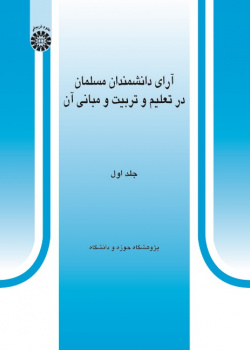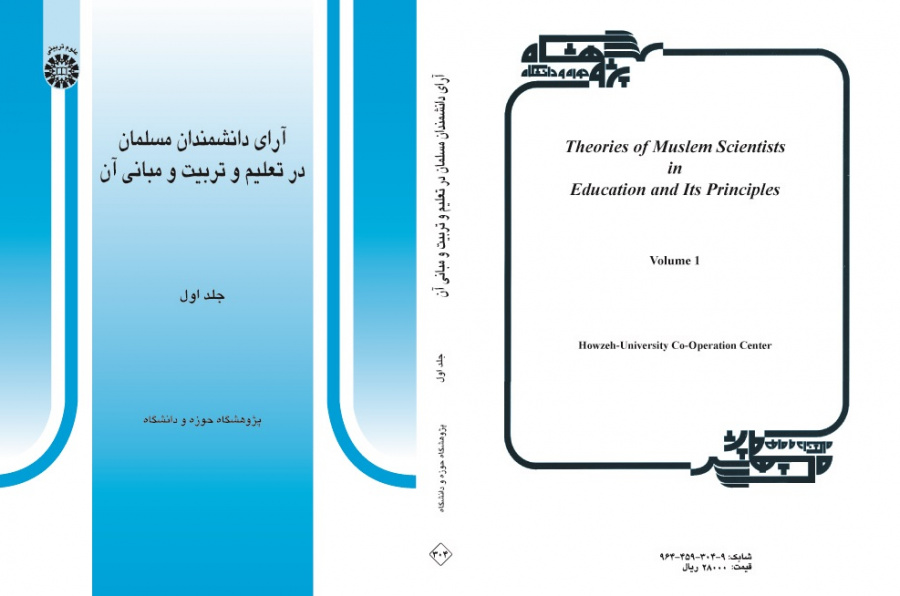

Theories of Muslim Scientists in Education and Its Principles (Vol.I)
Education is a branch of knowledge which creates a dynamic miscellaneous mixture seeking cohesion that makes use of psychology, sociology and cultural, religious and philosophic data, and it is based on science and philosophy. Every school of thought concerning education leans on a number of cultural, religious or philosophic believes and is influenced by scientific judgments. Thus in studying the educational sphere of our ancestors we face an extensive field.
The book is in six parts and nineteen chapters. The first part addresses the ideas of Jahiz about human beings, recognition, and finally morality and education. The second part covers Ibn Sahnun’s ideas. In the third part Farabi’s ideas on cosmology, homology, understanding, morality, knowledge, education are put forward. The fourth partr discusses Ghabesi’s ideas. The fifth part deals with Ikhvan Al-Safa’ ideas on the issues of religion and philosophy, human being, understanding, and morality, and education. In the sixth part the ideas of Avicenna on human beings, understanding, and morality, education are covered.
Compiled for the students of educational science, this book, which is the first volume of a five-volume series studying the history of Muslim scholars and philosophers’ views on education, studies the ideas of six early Muslim scholars about Education.





